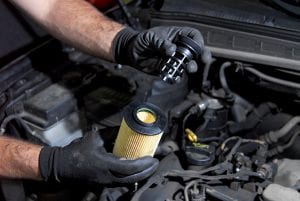Buying a second-hand car can be a savvy way to save money while still getting a vehicle that suits your needs. However, it’s essential to approach the process with a checklist of considerations to ensure you’re getting value and avoiding costly pitfalls, especially if you are looking to buy an older model.
Set a realistic budget
When on the hunt for a second-hand car, deciding on a budget is always the place to start as you need to take into consideration the car’s purchase price but also additional costs such as insurance, repairs, road tax, and potential maintenance fees. Older cars also require more frequent servicing, so factor in these additional expenses to avoid overspending.
Research makes and models for reliability
Not all cars hold up equally over time, so researching makes and models with a reputation for reliability is key. For example, certain brands such as Toyota, Honda, and Volvo have consistently high ratings for longevity. Online resources such as car forums, review sites, and consumer reports are excellent sources for identifying which models hold up well after years of use. This is especially important if you travel a lot or commute for work as you will be racking up more miles than the average driver.
Check the vehicle history
One of the most critical steps when buying a second-hand car is verifying its history. You can request a vehicle history report, which will reveal if the car has any recorded accidents, outstanding finance, or has been written off by an insurance company. In the UK, you can use the DVLA’s free online MOT history checker to view past MOT records and see if there are any outstanding advisories.

Inspect the car’s condition
Thoroughly inspecting the car is non-negotiable and a given. If you’re not mechanically inclined, you might also want to consider bringing a trusted mechanic along to spot any hidden issues or concerns. Here are some things to focus on during your inspection:
- Exterior: Check for rust, dents, and paint inconsistencies, which may indicate past accidents or improper care.
- Look at the tyres, ensuring they have even wear and sufficient tread.
- Interior: Inspect the upholstery, seatbelts, dashboard, and electronics. A heavily worn interior can signal high usage.
- Under the bonnet: Examine the engine bay for leaks, unusual smells, or excessive grime.
- Under the car: Inspect for any rust or oil leaks, especially around the exhaust system and suspension.
Assess the mileage
Mileage can be a good indicator of a car’s condition however there are always other factors to consider. For instance, a car with high mileage but regular maintenance may be in better condition compared to a car with low mileage and poor service history. On average, a vehicle in the UK covers around 10,000 to 12,000 miles annually so this figure can be used as a benchmark when discovering how many miles a car has done.
Test drive
A test drive offers insights into how the car handles, accelerates, and brakes and should be a priority no matter if you’re buying a brand-new car or a second-hand one. During the test drive, you will want to take note of things such as steering and suspension, braking, engine noise and transmission and the general feel. During this time, you can also take the opportunity to explore its different features and buttons.

Check for warning lights and dashboard indicators
Realistically, when you buy a car, you won’t want it to come with any issues, so checking for any warning lights is key.
When you start the engine, check the dashboard for any illuminated symbols. An illuminated “check engine” light, ABS light, or airbag warning can signal problems that might require costly repairs. If warning lights remain on after starting the car, ask the seller about any recent diagnostics and consider having the car inspected by a professional.
Negotiate based on your findings
If you notice any minor issues during your inspection or test drive, use them as leverage to negotiate the price. Issues like worn tyres, minor scratches, or outdated maintenance can help justify a lower offer and regular sellers are often willing to reduce the price if they know repairs or upkeep will be necessary.
The benefits of buying a second-hand car
Buying a second-hand car can offer numerous advantages, making it an appealing option for budget-conscious drivers or those simply looking to get the most value from their purchase.
Here are some of the key benefits:
- Lower purchase price
- Reduced depreciation
- Lower insurance costs
- Environmental benefits
- Access to reviews and past data
- Certified and warranty options
Car Filters – Serving drivers across the UK
Filter services have a selection of car filters, ranging from air filters to oil filters, used to create a safe and clean driving experience. Our range of filters comes with some of the best quality features and brand names, used for a number of different vehicle types and including construction, car filters, lorries, agriculture, tractors, energy, mining and more.
Filter Services provide top-of-the-range filters for a number of industries, teaming up with brands such as Donaldson, Mann, Hifi, Baldwin and Fleetgaurd. You can be sure that the filters we provide a clean and safe driving experience.
